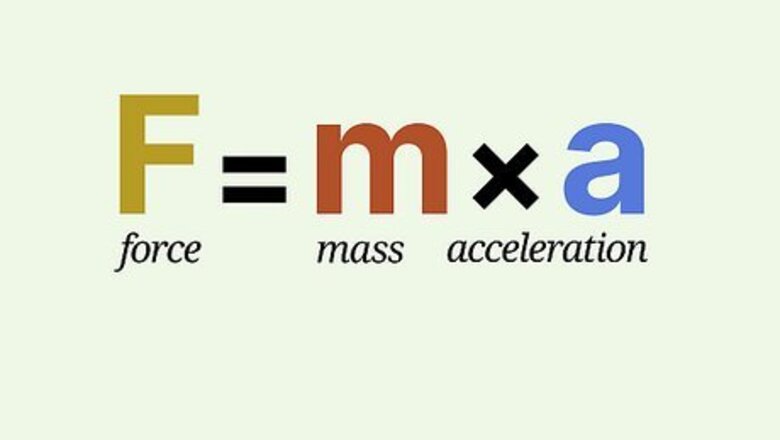
views
X
Research source
Learning the Formula
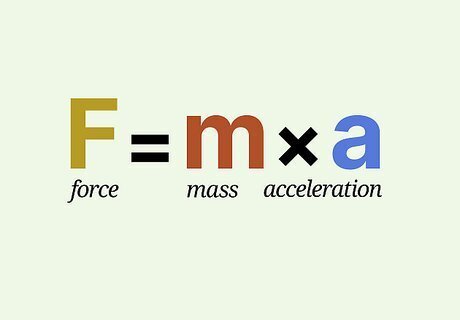
Multiply mass times acceleration. The force (F) required to move an object of mass (m) with an acceleration (a) is given by the formula F = m x a. So, force = mass multiplied by acceleration.
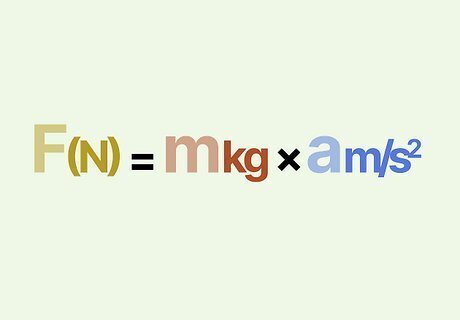
Convert figures to their SI values. The International System of Units (SI) unit of mass is the kilogram, and the SI unit of acceleration is m/s (meters per second squared). So when mass and acceleration are expressed in their SI units, we get the force in its SI units which is N (Newtons). As an example, if the mass of the object is given to be 3 pounds, you'll need to convert those pounds to kilograms. 3 pounds make 1.36 kg, so the mass of the object is 1.36 kg.
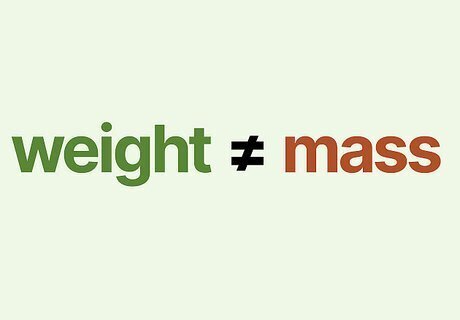
Keep in mind that weight and mass mean different things in Physics. If the weight of an object is given in N (Newtons), then divide it by 9.8 to get the equivalent mass. For example, 10 N weight is equivalent to 10/9.8 = 1.02 kg.
Using the Formula
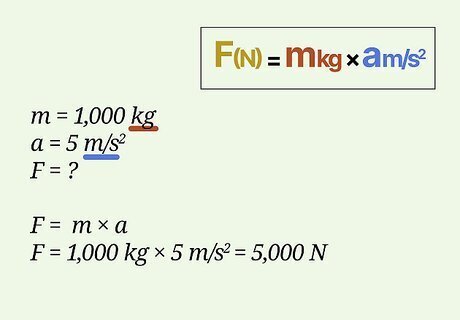
Find the force that is required to accelerate a 1,000 kg car at 5 m/s. Check to make sure all your values are in the correct SI unit. Multiply your acceleration value (1000 kg) by 5 m/s to calculate your value.
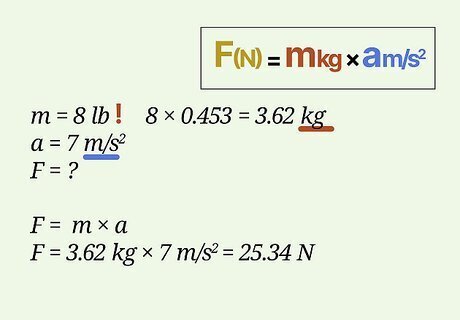
Calculate the force required for an 8 pound wagon to accelerate at 7 m/s. First, convert all your units to SI. One pound is equal to .453 kg, so you'll need to multiply that value by your 8 pounds to determine the mass. Multiply your new value for the mass (3.62 kg) by your acceleration value (7 m/s).
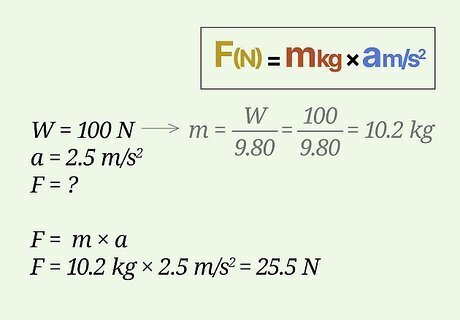
Find the magnitude of force acting upon a cart weighing 100 N and accelerating at the rate of 2.5 m/s. Remember, 9.80 N is equal to 1.00 kg. So, convert Newtons to kg by dividing by 9.8 kg. Your new kg value should be 10.2 kg for the mass. Multiply your new mass value (10.2 kg) times the acceleration (2.5 m/s).




















Comments
0 comment